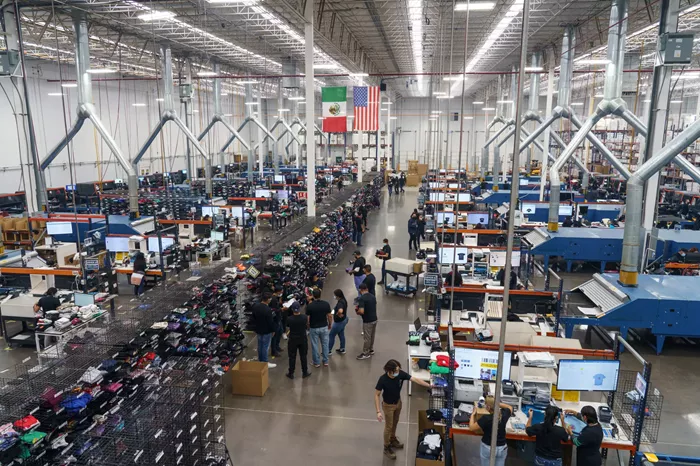If President-elect Donald Trump proceeds with his plan to deport millions of immigrants, experts say it could severely impact the economies of states dependent on agriculture and food-related industries, where labor shortages are already a significant challenge.
According to the U.S. Department of Labor, immigrants account for roughly two-thirds of the nation’s crop farmworkers, with around 40% of them lacking legal authorization to work. Key agricultural sectors such as meatpacking, dairy, poultry, and livestock also rely heavily on immigrant labor.
Bruce Lampman, owner of Lampman Dairy Farm in Bruneau, Idaho, which produces about 26,000 pounds of milk daily, stressed that his business—and many others—could not survive without immigrant workers. “We wouldn’t survive without them,” Lampman said, adding that his workers are concerned about the future under potential deportation policies.
Anita Alves Pena, an economics professor at Colorado State University, noted that many agricultural employers are already struggling to find enough labor. A sharp reduction in the immigrant workforce, Pena argued, could significantly harm state economies. “This policy, if enacted without additional protections, would only worsen existing labor shortages,” she said.
Farm labor is tough and typically pays low wages, making it difficult for employers to recruit U.S.-born workers. To address this, many rely on the H-2A visa program, which allows foreign workers to fill seasonal positions for up to three years. However, workers in year-round industries like dairy and poultry are unable to utilize this program, as it is limited to seasonal work.
In addition to H-2A workers, farmers employ foreign nationals with Temporary Protected Status (TPS), a program that allows immigrants from unsafe countries to stay in the U.S. Trump has threatened to end the TPS program, which currently protects about 1.2 million immigrants from countries such as El Salvador, Haiti, and Ukraine.
The National Milk Producers Federation (NMPF), representing dairy farmers, has expressed concern about the impact of mass deportations. The group advocates for agriculture labor reform, including a pathway to legal status for current workers. Immigrants represent 51% of the workforce on U.S. dairy farms and are responsible for nearly 80% of the nation’s milk supply.
“The dairy industry cannot exist without immigrant labor,” said Jaime Castaneda, the NMPF’s executive vice president. “We are working with Congress and federal officials to highlight the importance of foreign workers to our industry.”
The poultry industry is also heavily reliant on immigrant workers. Tom Super, spokesperson for the National Chicken Council, criticized the U.S. immigration system, calling it “broken” and urging for a stable and legal workforce.
Despite the urgency, experts say changes to the H-2A program are unlikely to happen before any deportations begin. Trump has reiterated his plan to start deporting immigrants, beginning with convicted criminals before targeting others.
However, many farmers are concerned about the potential consequences. Rick Naerebout, CEO of the Idaho Dairymen’s Association, warned, “Our ability to feed ourselves as a country is completely jeopardized if mass deportations occur.”
Economists and agricultural experts agree that replacing the lost labor would be a difficult task. “The H-2A program won’t expand quickly enough to fill the gap,” said Jeffrey Dorfman, an agricultural economics professor at North Carolina State University. In Georgia, for example, about 60% of agricultural jobs rely on H-2A workers.
Even the mere threat of deportation could cause disruptions. Dorfman noted that farmworkers—both legal and undocumented—often leave when they hear about immigration raids. If the deportations are widespread, many workers may self-deport, further deepening labor shortages.
Antonio De Loera-Brust, communications director for the United Farm Workers union, emphasized the need to protect workers regardless of their legal status. “They deserve better wages, labor rights, and citizenship,” he said.
Although economists have warned that mass deportations could lead to higher grocery prices, De Loera-Brust criticized the focus on economic impacts, calling it a “moral gap.” He argued that the real issue is the separation of families and the treatment of workers, rather than the potential increase in food costs.
The debate over immigration policy and its effects on agriculture is ongoing, with significant uncertainty about the future of U.S. labor markets and food production.
Related topics:
- Trump Proposes Deporting Families with Mixed Immigration Status
- Billionaire’s Shocking Warning About the Surge in Chinese Immigration to Australia
- German Start-Ups Urge Government to Simplify Visa Rules and Speed Up Processing for Global Talent


